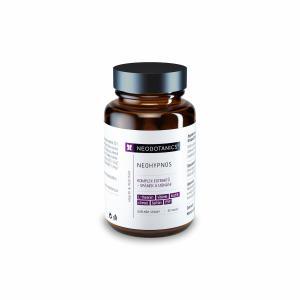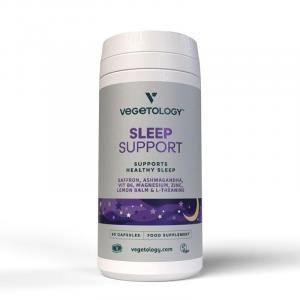
Discover the Causes of Dark Circles Under the Eyes and Effective Solutions

What Does Our Body Tell Us When Dark Circles Appear Under the Eyes?
A glance in the mirror after a long day or a restless night can sometimes reveal more than we'd like. Dark circles under the eyes are one of those subtle but very telling signs that our body is not entirely in balance. Although it's a common issue affecting people across all ages and lifestyles, its causes and solutions can be surprisingly varied.
Why Do Dark Circles Appear Under the Eyes?
The most frequent culprit is fatigue. Lack of sleep causes the skin under the eyes to pale, and the blood vessels beneath become more prominent, creating the appearance of darker coloration. But it's not just about poor sleep. Genetic predispositions, dehydration, stress, poor lifestyle, allergies, or even hormones can also have an impact. Even the way we sleep—for instance, on the stomach with the head buried in the pillow—can contribute to fluid accumulation, leading to puffiness and shadows under the eyes.
From a physiological standpoint, it's a combination of several factors: thinned skin around the eyes, dilated blood vessels, and sometimes accumulated melanin. In some cases, dark circles under the eyes are mistaken for pigment spots or shadows caused by deep-set eyes.
It's important to mention, however, that sometimes dark circles under the eyes can also be a sign of a health issue. For instance, chronic allergic rhinitis, liver or kidney problems, or anemia can lead to changes in the area under the eyes. Therefore, if the circles are pronounced and long-lasting, it is advisable to consult a specialist.
Dark Circles in Children
Many parents are taken aback when they notice that their child also has dark shadows under their eyes. Dark circles under the eyes in children are not as unusual as it might seem. Usually, it's nothing serious—it might simply be a sign of fatigue, insufficient sleep, or hereditary predisposition. In children, the skin is particularly delicate and thin, so even small changes in blood flow in this area can cause visible color changes.
However, if dark circles appear frequently and are accompanied by other symptoms, such as irritability, restless sleep, frequent colds, or digestive issues, it is worth investigating further. A common cause can be food intolerances, allergies, or weakened immunity. In some cases, it may be due to a deficiency in iron, vitamin D, or B12. A medical examination can then reveal what exactly is behind the change in appearance.
Parents should also pay attention to sleep conditions—the quality of air in the room, sufficient fresh air, and a regular routine are key. Often, just ensuring enough fluids throughout the day and a varied, nutritious diet rich in fruits, vegetables, and healthy fats can help.
What Really Helps with Dark Circles Under the Eyes?
The effort to get rid of dark circles under the eyes often leads to a combination of home care, natural methods, and cosmetics. In the short term, cold compresses, green or chamomile tea, cucumber slices, or spoons chilled in the fridge can help. These methods soothe the skin and temporarily constrict blood vessels, which optically reduces dark coloration.
In the long term, however, an effective solution lies in changing one's lifestyle. Quality sleep, adequate hydration, limiting alcohol and caffeine, regular exercise, and caring for mental well-being are foundational. Protection from sun exposure is also very important—the skin around the eyes is extremely sensitive and easily succumbs to photoaging, which worsens dark circles.
Try our natural products
And what about cosmetics? Eye cream for dark circles can be an effective helper if chosen correctly. We should focus on products containing caffeine, vitamin C, retinol, or hyaluronic acid. These substances work to firm the skin, improve microcirculation, and lighten dark areas.
Natural cosmetics offer a high-quality alternative without synthetic substances and parabens. For example, products containing sea buckthorn, calendula, or extracts from sea algae have excellent regenerative and soothing effects. In the Ferwer e-shop, you can find a range of sustainable and non-toxic eye creams, which not only care for the skin but also don't burden the environment.
How a Change in Routine Eliminated Dark Circles Under the Eyes
Jitka, a thirty-year-old manager from Brno, struggled with dark circles under her eyes for nearly ten years. She tried everything—from expensive creams to home remedies and concealers. Nothing helped in the long term. It wasn't until she decided to reevaluate her daily habits that she began to see a change.
"I realized I drank very little water and often skipped breakfast. Plus, I suffered from chronic stress and only slept five hours a day," Jitka describes. She started going to bed earlier, included green foods in her diet, stopped drinking coffee in the afternoon, and practiced yoga twice a week. After two months, not only she but also those around her noticed a significant improvement. "Suddenly, I didn't need to use concealer. Even my skin tone evened out," she says with a smile.
Her story shows that eye care is not just about cosmetics but mainly about an overall approach to health.
Can the Removal of Dark Circles Under the Eyes Be Permanent?
Many are looking for a definitive solution—something that simply "erases" dark circles permanently. Aesthetic medicine today offers various procedures, from laser therapies to filler applications. However, these methods are not without risk and are not accessible to everyone. Moreover, they usually address the symptoms, not the cause.
Long-term effects are primarily achieved through a comprehensive approach—from proper nutrition, regular exercise, to inner balance. Sure, we can't change genetics, but the way we take care of ourselves can significantly soften or completely remove dark circles.
As renowned dermatologist Dr. Howard Murad says: "Your skin is a reflection of your lifestyle." If we give it what it needs, it will reward us with a healthy and fresh appearance—without dark circles.
So, it seems that the answer to the question "What really helps with dark circles under the eyes?" is not just one. But when healthy sleep, nutrition, the right cosmetics, and mental well-being are combined, results will follow. And perhaps the best part of it all is that proper self-care not only addresses appearance but also improves our overall quality of life.



